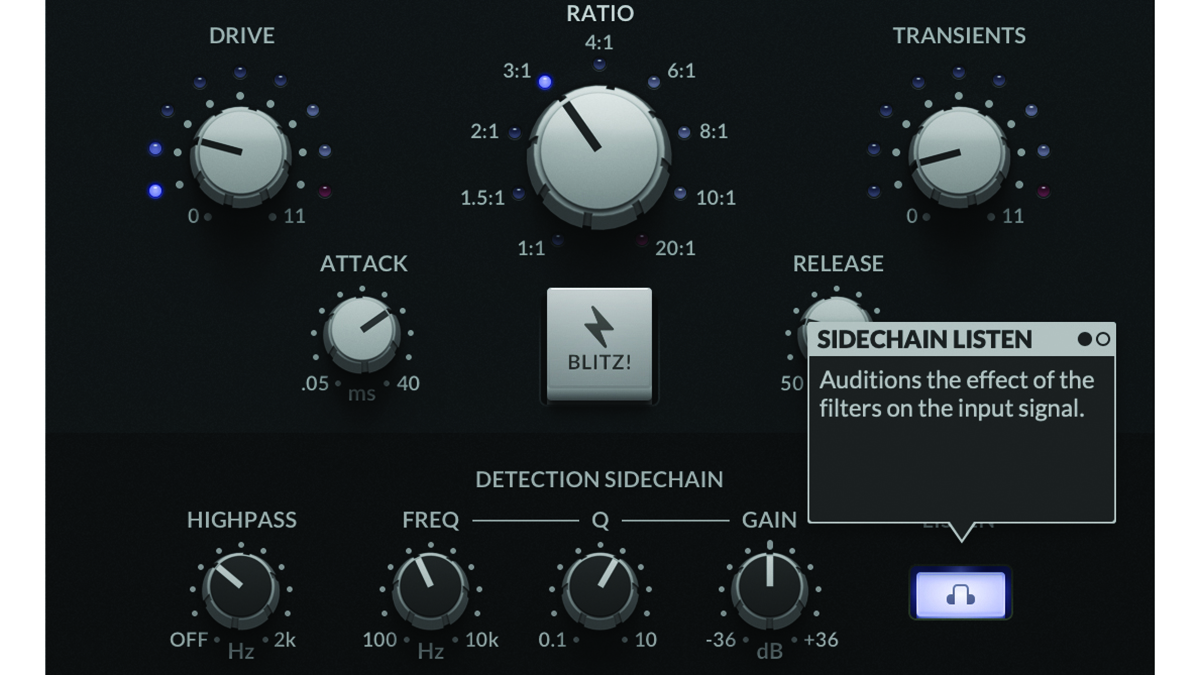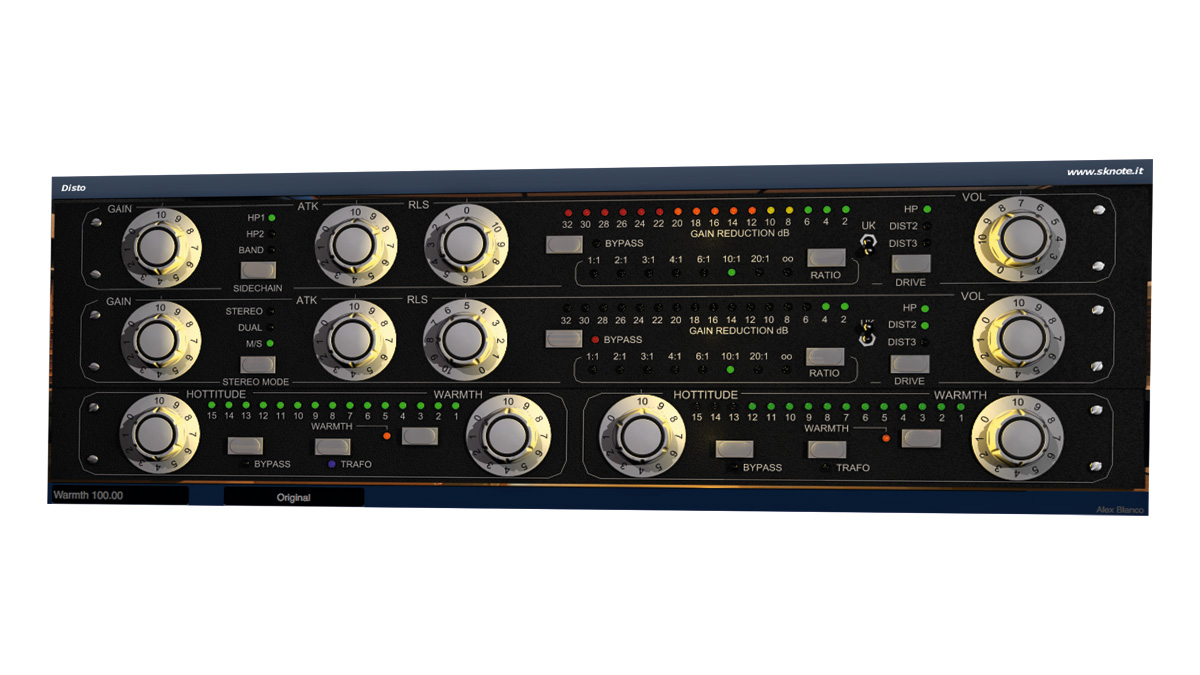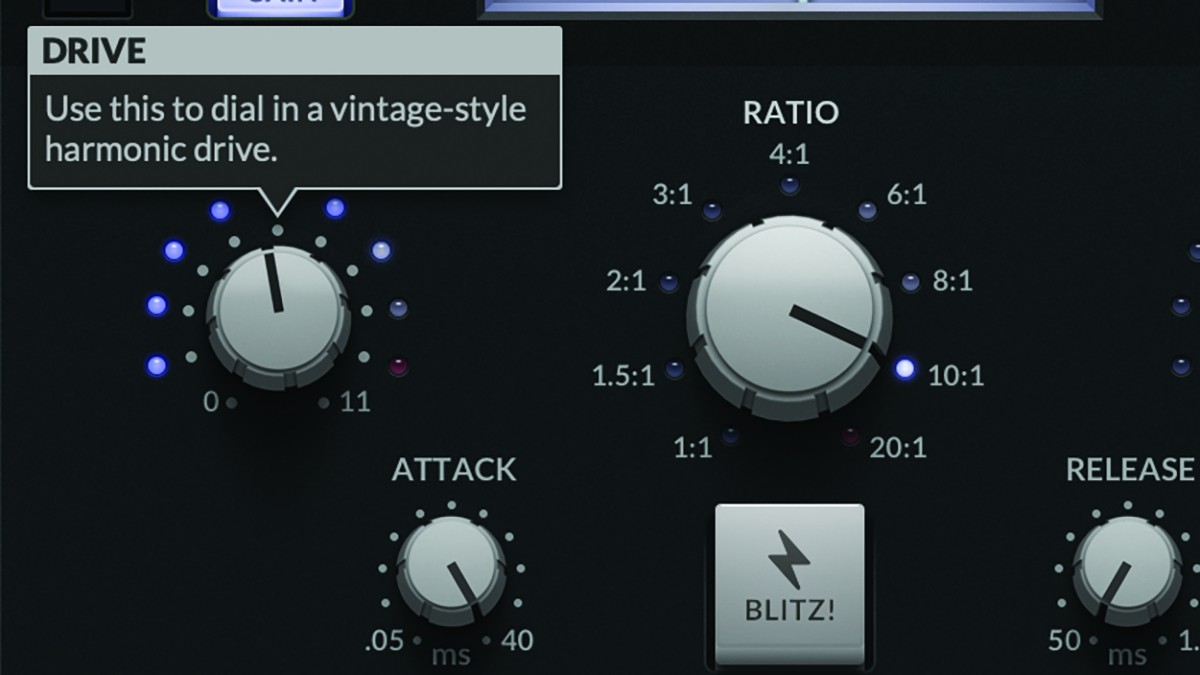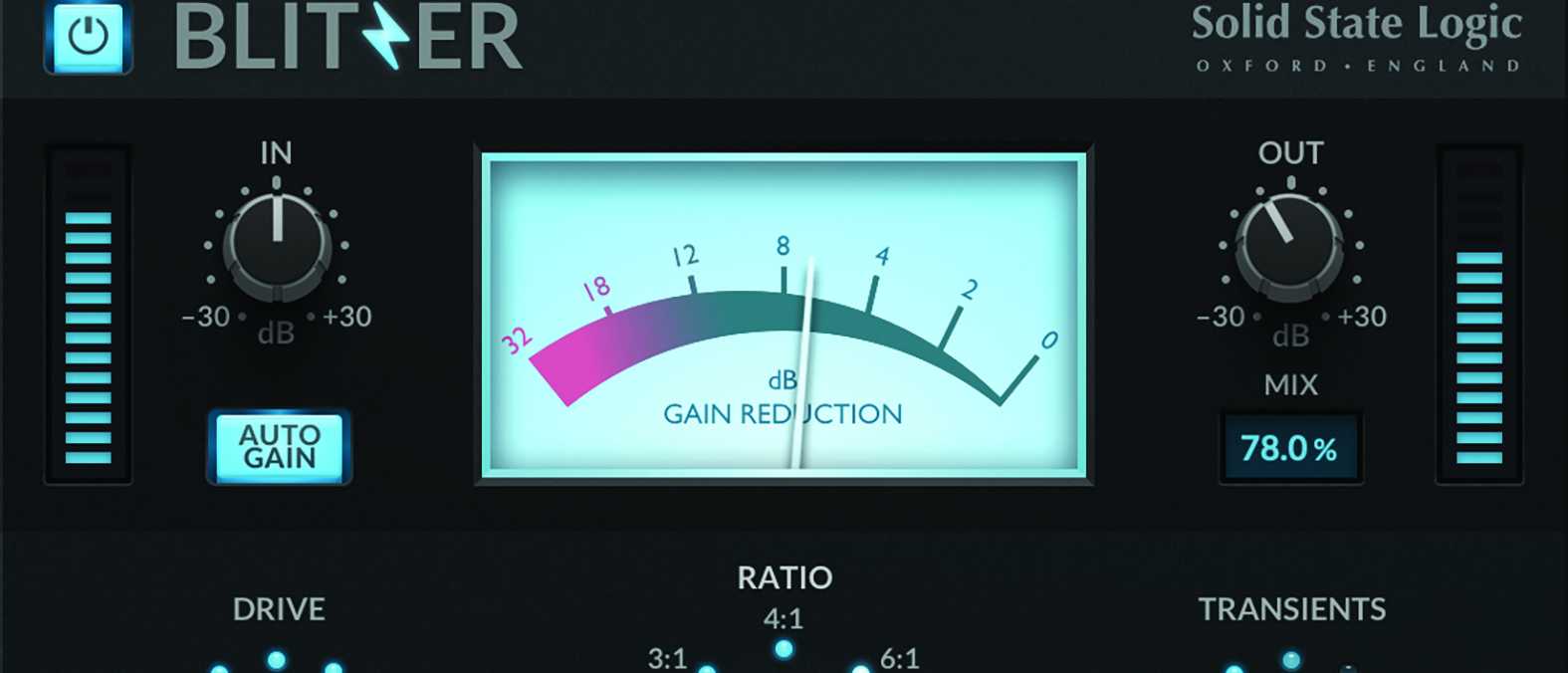MusicRadar Verdict
Blitzer is both powerful and easy to use and one of the best new compressor plugins we’ve seen in some time.
Pros
- +
Impressive choice of compression styles on offer.
- +
Powerful sidechain options.
- +
Excellent transient tailoring feature.
Cons
- -
No way to bypass the sidechain EQ.
MusicRadar's got your back
Solid State Logic Blitzer: What is it?
macOS 10.12 - 11.6. 64-bit.
Windows 10. 64-bit.
RAM: 4GB or higher.
Buy at Plugin Boutique
Many SSL hardware compressors are already available in fantastic plugin emulations. But the company has also developed further compressor plugins from the ground up like X-Comp and X-valvecomp.
That continues with its latest addition, Blitzer. A ‘compressor with attitude’, it looks conceptually similar to Empirical Labs Distressor. It aims to deliver everything from soft, saturating compression right up to brick wall limiting, and combines regular compression controls with dedicated Drive and Transient-shaping processors. Nevertheless, one-knob-style controls coupled with a clear layout and dedicated gain reduction meter keep things easy to understand. Throw in a few convenient extras like output wet/dry mix, output Auto Gain, oversampling mode (HQ), undo/redo, context-sensitive tool tips, and a very well spec’d sidechain EQ section and you get a great combination of sonic flavours all in one easy to use plugin.

Solid State Logic Blitzer: Performance and verdict
Fundamental to Blitzer are the distinctive knee shapes found in analogue compressors and this creates many different attack and release profiles and threshold offsets. These are baked into the Ratio and Blitz! mode settings, providing 10 unique behaviours.
Fundamental to Blitzer are the distinctive knee shapes found in analogue compressors
Look closely and you’ll spot that these start with a 1:1 no compression setting. This adds a tiny amount of 3rd harmonic distortion and is ideal for warming up sounds. Then moving up the ratio dial you’ll find wide parabolic knee shapes with a very gentle response followed by easy slope options with a narrower knee. At 10:1 and 20:1 you get two opto-inspired modes that closely emulate the non-linearities of these classic hardware designs. Rounding things off, Blitz! mode delivers an aggressive brick-wall-style limiting effect, with attack and release characteristics based on the classic 1176 all buttons mode.

• SKnote Disto
This affordable emulation extends its capabilities with four different core-processing algorithms.
• UA EL8 Distressor Compressor
UAD’s emulation of this analogue classic includes the renowned Nuke setting.
Despite the name, Blitzer is very good at reasonably transparent compression duties, and bread ‘n’ butter tasks like vocals, bass, sub mixes and mix bus. However, it’s the tougher stuff that grabbed our attention. For example, both opto settings deliver that squashy pumping compression that’s great for adding energy to drums. Meanwhile Blitz! mode goes further, adding colour to pretty much anything you throw at it.
Of course, compression is only part of the story, with the Drive and Transient processors providing further flavours. On the analyser we found Drive added primarily odd harmonic distortions, with some even harmonics creeping in at higher settings. Its behaviour was also somewhat linked to the selected ratio. Either way, the effect moves from subtle saturation right up to trashy fuzziness at the aptly labelled setting 11.
Transient meanwhile introduces a slower initial attack for sharp transients, creating a form of overshoot. Unsurprisingly we found this most obvious when using faster attack settings, as it allows you to wind some transient back into the mix. This works well across the ratio settings but is particularly effective in Blitz! mode and is ideal for drums, allowing you to enjoy the ambience-enhancing compression and keep your beats crisp.
Want all the hottest music and gear news, reviews, deals, features and more, direct to your inbox? Sign up here.

Would you like a side with that?
Many plugin compressors include sidechain tailoring, but the complexity on offer varies a lot. Blitzer includes both a dedicated high-pass filter (up to 2kHz) and a single parametric EQ band. Decent frequency range (100Hz to 10kHz), adjustable bandwidth and powerful gain (+/- 36dB) mean you can achieve a multitude of frequency-conscious compression styles. With gain cut and boost both available you can approach things in various ways. A powerful cut in the upper frequencies, say, de-emphasises these in the sidechain, resulting in the mid to lower range getting more compression. Meanwhile adding a sharp narrow boost in the sibilance region turns Blitzer into a respectable de-esser.
The only negative is there’s no way to bypass the onboard sidechain EQ section so you can assess if it’s benefitting the compression outcome. Still, it’s great to see a powerful sidechain section incorporated in this flexible, flavour-packed compressor.
Verdict
Blitzer is clearly a plugin with a purpose and we like where it’s coming from. The powerful sidechain coupled with tone and transient-shaping aspects achieve way more than a simple hardware emulation and bring everything into a simple clear interface. So, if you’re open to a multi-function creative plugin and are bored of your existing hardware emulations, this could be what you need.
MusicRadar verdict: Blitzer is both powerful and easy to use and one of the best new compressor plugins we’ve seen in some time.
Solid State Logic Blitzer: Hands-on demos
SSLvideos
Czar
Solid State Logic Blitzer: Specifications
- macOS 10.12 - 11.6. 64-bit.
- Windows 10. 64-bit.
- RAM: 4GB or higher.
- Buy at Plugin Boutique
Jon is a London based platinum award winning mixer, producer, composer and club remixer with a diverse CV that spans dance, pop, rock and music for media. He’s also a long term contributor to MusicRadar's music technology tutorials and reviews. Whether working alone or collaborating he usually handles final mixdowns, so you’ll also find MusicRadar peppered with his handy mixing tips.

